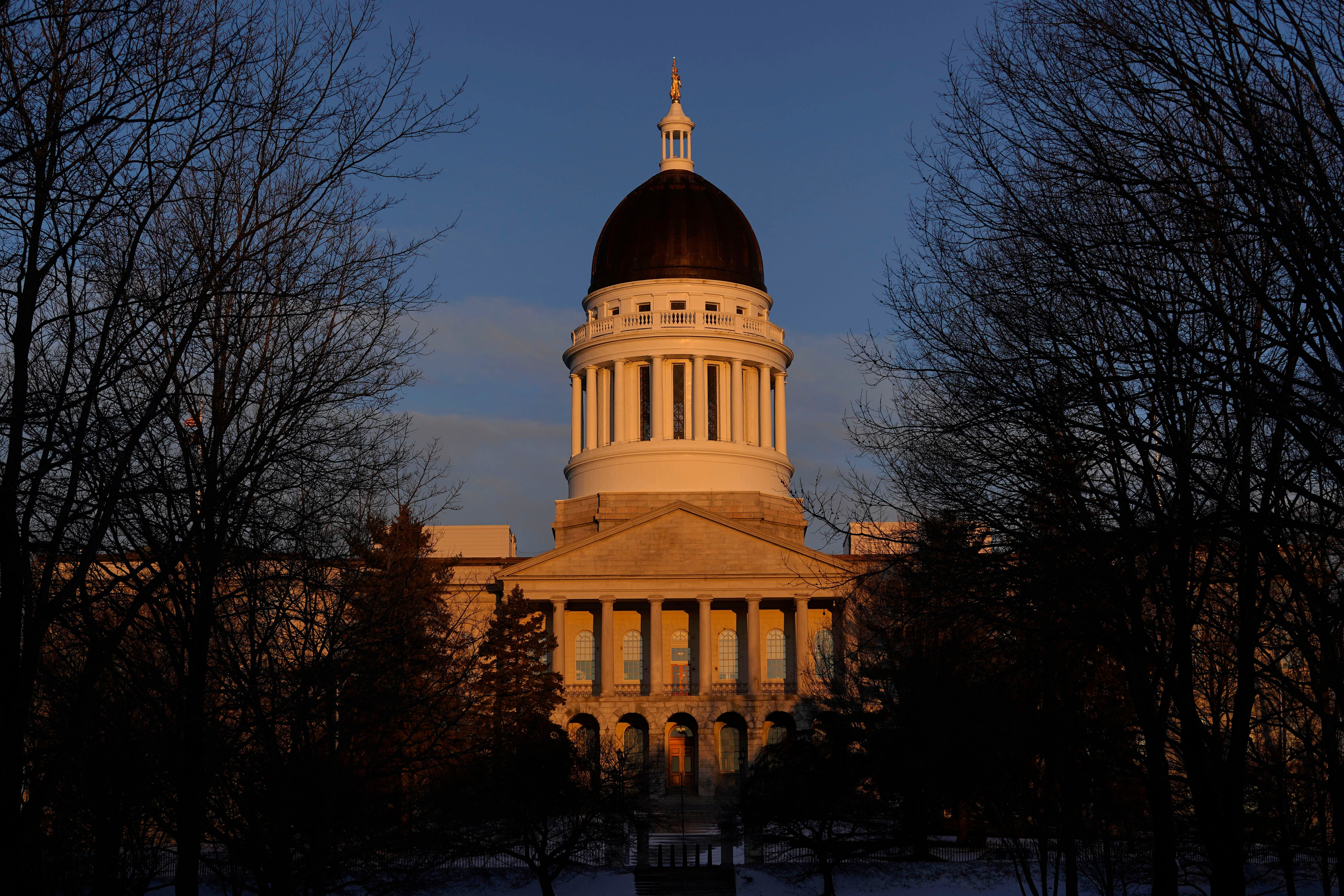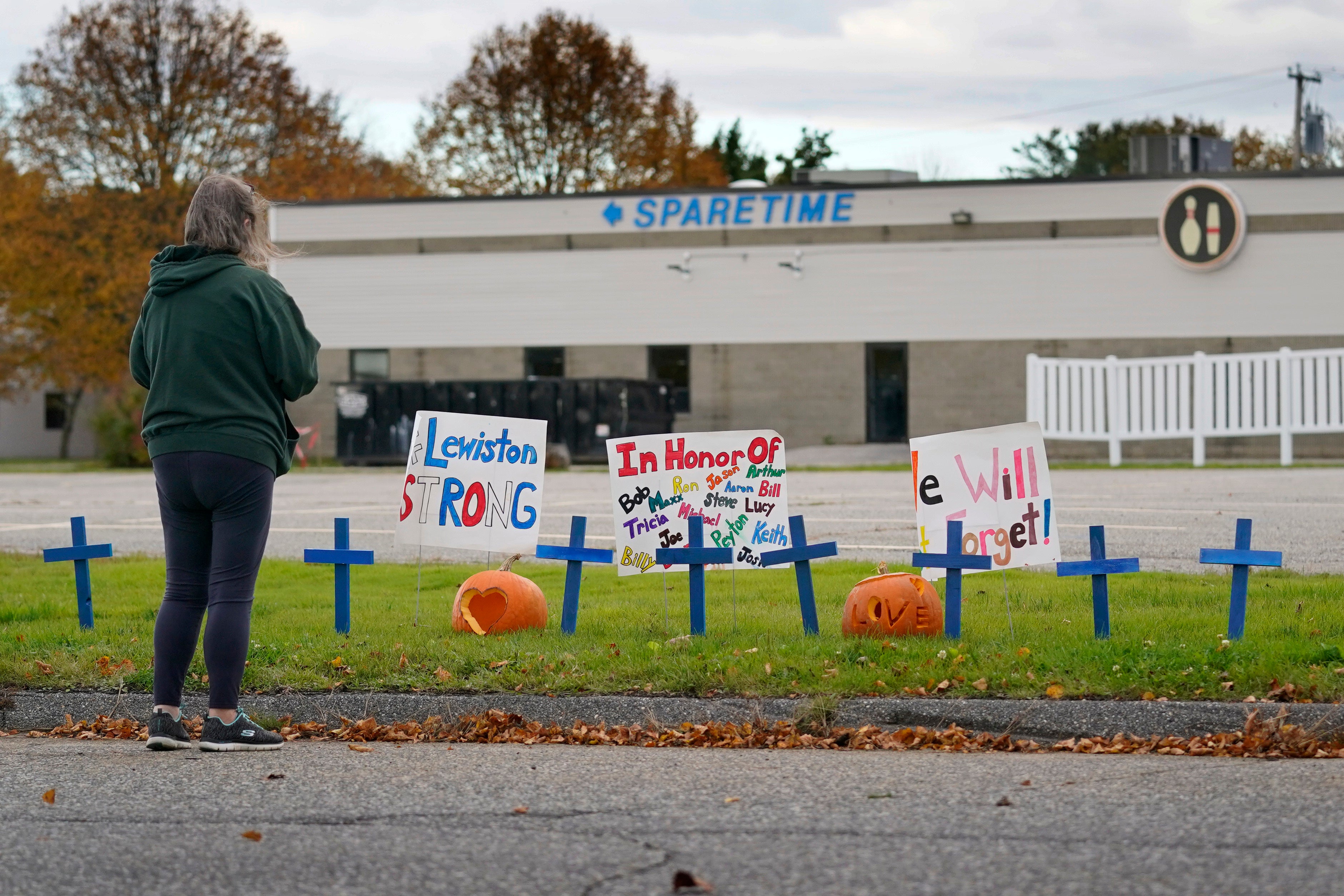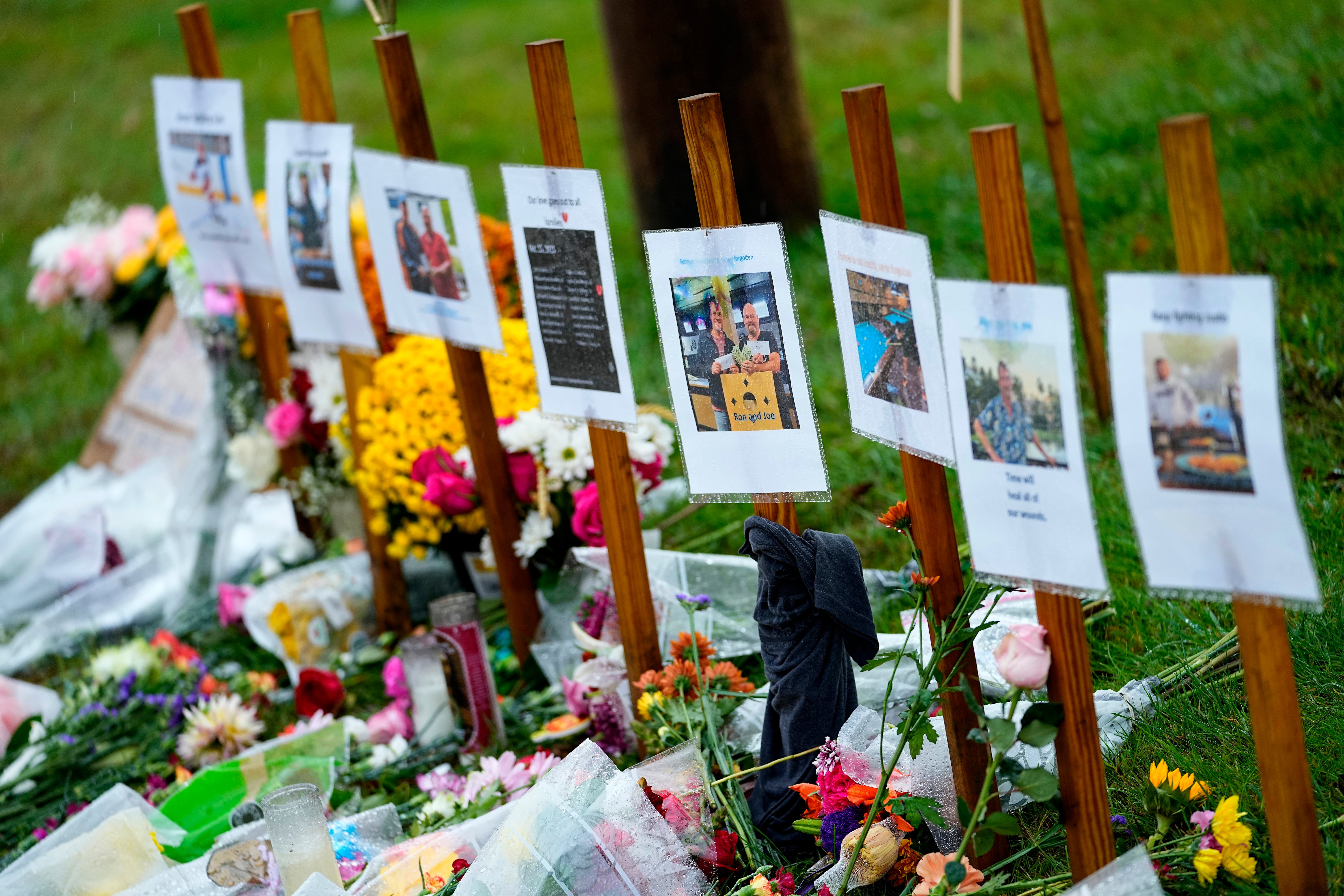Maine takes on gun debate after deadly Lewiston mass shooting
Lawmakers are looking into revising the state’s ‘yellow flag’ laws, but may face resistance in the strongly pro-Second Amendment state
Lawmakers in Maine are considering new gun control bills after a deadly mass shooting in the state in which 18 people were killed.
The shooting happened little more than a month after a deputy tried to conduct a welfare check on the gunman, Robert Card, after the reservist made threats against his US Army base.
A statewide awareness alert was issued in mid-September asking every law enforcement agency in the state to watch for Card – but police were unable to locate him, and the deputy didn’t have authority to force his way in, a sheriff said.
Just 24 days later, police say Card opened fire on innocent victims in a bowling alley and bar in Lewiston.
Now, lawmakers are looking into revising the state’s “yellow flag” laws, which enable local law enforcement to take someone into protective custody, order a mental health evaluation from a medical expert and apply for a court order to get guns temporarily taken away from someone who is considered to be an immediate violent threat.
The laws were passed with the help of a gun-rights group, but while it is not clear whether anyone had used the yellow flag law in the suspect’s case, the measures have come under scrutiny since the shooting.
Card had been committed to a mental health facility for two weeks the summer before the shooting and had reported “hearing voices and threats to shoot up” a military base.

And according to multiple investigative documents, police were warned about Card’s mental health issues and access to guns on more than one occasion, by both his family members, as well as his peers from the Army Reserve. However, he was still able to carry out the shooting in October.
Legislative leaders including Senate President Troy Jackson and House Speaker Rachel Talbot Ross are now in talks about revisiting the yellow flag law and updating Maine’s existing gun laws like background checks, but have not publicly revealed details.
Aides have said they want to get stakeholders together to try to build support in the strongly pro-Second Amendment state before offering specific language.
In recent years, anti-gun violence groups in Maine have repeatedly failed in pushing for stronger laws, even with Democratic control of the Legislature and governor’s office.
In 2016, voters defeated a proposal to expand background checks on gun purchases in a statewide referendum, while more recently, lawmakers rejected proposals earlier this year that would have required background checks for private gun sales and created a 72-hour waiting period for gun purchases.

Proposals for stricter “red flag” laws, which are used in 20 states and allow any relative or roommate who suspects a gun owner is an immediate violent threat to apply for an emergency court order that will force the individual to surrender their gun license and their guns, have also fallen flat in the state in the past.
Nonetheless, lawmakers are now thought to be trying again to introduce tougher gun control restrictions, with the Maine Gun Safety Coalition attempting to ban assault weapons in the state.
On Wednesday, lawmakers in Maine devoted time to acknowledging those who died in the mass shooting in both the Senate and House chambers.
In the Senate, a chorus from Lewiston High School sang the national anthem and Democratic Senator Peggy Rotundo of Lewiston warned her colleagues against forgetting what happened in her hometown.
“The world may have moved on but for the people of Lewiston, the surrounding communities and many others in Maine, the healing is just beginning. The pain, the trauma and the anguish remain,” she said.
In the House, Democratic Rep Kristen Cloutier of Lewiston told her colleagues that she remains overcome with sadness. “Nothing has been the same since that night. And nothing will ever been the same again,” she said.
Elsewhere in the state, Second Amendment supporters gathered at rallies, and expressed scepticism that lawmakers can do anything to prevent gun violence.

“Show me what laws would have done anything to prevent this tragedy in Lewiston. Show me one,” Robert Duhaime, a boatbuilder from Surry who also owns a gun range, told the Associated Press. “We already have so many laws on the books.”
Meanwhile, Max Zachau, a lifelong Maine hunter, urged fellow hunters to join him in standing up for “better laws” in Maine, which is one of about 20 states that allow permitless carry — having a concealed weapon in public without a permit.
He noted that restrictions surrounding the use of hunting guns in the state, with shotguns used by waterfowl hunters limited to a maximum of three rounds, even as some assault rifles carry high-capacity magazines.
“The fact that we give a flock of ducks a better chance to escape than what we give to a classroom full of school kids tells me that our regulatory system is woefully inadequate,” Mr Zachau said.
With reporting by Associated Press
Bookmark popover
Removed from bookmarks